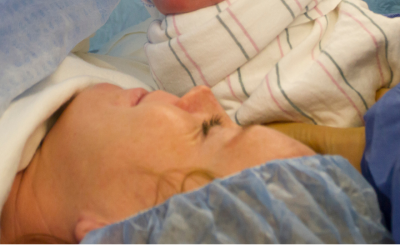
Research Funding
Peter Joseph Pappas Grant Recipients
Peter J. Pappas Grant Recipients
About Peter J. Pappas Grant
Named for the infant son of preeclampsia survivor Lauren Pappas and her husband Clement, the Peter Joseph Pappas Research Grants program award grants totaling up to $200,000 each year. The ultimate goal of the program is to drive research that will eliminate the delivery of pre-term babies as an intervention for severe preeclampsia, HELLP syndrome, and related hypertensive disorders of pregnancy. The Peter Joseph Pappas Research Grants program adds to the Preeclampsia Foundation’s portfolio of research programs including the Vision Grant program for young investigators.
Questions about Peter Joseph Pappas Research Grants program? Email PJPGrants@preeclampsia.org.
2026 Recipients
Beyond the Exome: Functional Dissection of FLT1 Regulatory Variants in Preeclampsia
Principal Investigator: Aki Ushiki, PhD
Washington University School of Medicine in St. Louis, Missouri, USA
Description: How non-coding genetic variation regulates gene expression and contributes to the pathogenesis of preeclampsia, with the goal of identifying enhancer-mediated gene regulatory mechanisms underlying placental development and disease.
Precision therapeutics for optimizing preeclampsia prevention
Principal Investigator: Kathleen Fisch, PhD
UC San Diego, Department of Obstetrics, Gynecology and Reproductive Sciences in San Diego, California, USA
Description: Research explores the molecular mechanisms underlying pregnancy disorders and investigates relationships between prenatal exposures and pregnancy outcomes.
2025 Recipients
Novel small molecule therapeutics for the treatment of preeclampsia
Principal Investigator: Zsuzsanna K. Zsengellér, MD, PhD
Beth Israel Deaconess Medical Center and Harvard Medical School, Boston, Massachussetts, USA
Description: The study will focus on developing hydrazone-based antioxidants to mitigate oxidative stress which is one of the major components in preeclampsia pathogenesis. This is a collaborative study with the Török Lab at the University of Massachusetts Boston, Chemistry Department.
Harnessing Paired Maternal-Child iPSCs to Model PE
Principal Investigator: Virginia D. Winn, MD, PhD
Stanford University, Palo Alto, California, USA
Description: The study will focus on using induced pluripotent stem cells (iPSCs) from mother-child pairs who experienced a PE pregnancy and comparing them to those from normal pregnancies to understand more about diverse subtypes of preeclampsia.
2024 Recipients
Developing nanoparticles to target trophoblasts in the placenta for nucleic acid delivery
Principal Investigator: Rachel Riley, PhD
Rowan University
Description: This project will develop nanoparticles that target trophoblasts in the placenta for nucleic acid delivery. We aim to use these nanoparticles as therapeutics and to understand the molecular drivers of preeclampsia, ultimately leading to new therapeutic interventions.
Utility of placental growth factor in the obstetric triage setting
Principal Investigator: Jacqueline Parchem, MD
The University of Texas Health Science Center at Houston
Description: The proposed study will examine the utility of placental growth factor (biomarker of placental function) in the obstetric triage setting, and explore the relationship between circulating PlGF and underlying trophoblast biology. Doctors Baha Sibai, professor of maternal-fetal medicine at UTHealth Houston, and Natalie Neff, maternal-fetal medicine fellow at UTHealth Houston, are co-leaders of the study.
2023 Recipients
Characterization of apolipoprotein L1 (APOL1) variant-overexpressing cell lines for high-throughput drug screening
Principal Investigator: Wendy Kuohung, MD
Boston University Chobanian & Avedisian School of Medicine
Description: The study is designed to potentially accelerate discovery of therapies for preeclampsia by designing placental cell lines that express variants of the APOL1 gene for drug screening. Previous research has found that these variants in the APOL1 gene increase the risk of developing preeclampsia when present in the fetus and also alter levels of certain proteins in cells when expressed. The study aims to design a special assay using these cell lines to measure changes in protein levels after treatment with different compounds.
2022 Recipients
Cell-type specific differences between preeclampsia and normal placentas using unbiased single-cell RNA-sequencing
Principal Investigators: Amit Zeisel, PhD and Ido Solt, MD
Technion Research and Development Foundation
Description: The study will focus on the difference between preeclamptic placentas and those of non-affected pregnancies by measuring tens of thousands of placenta cells, one cell at a time, using a state-of-the-art method called single-cell RNA-sequencing. Discovering the differences between preeclamptic and normal placentas at a cellular level could contribute to the understanding of the basic, initial mechanisms of the disease – a crucial step towards predicting and preventing preeclampsia. Importantly, the collected datasets will be used to construct an open, easily accessible online resource to serve as a reference atlas of human placenta in health and disease that will be broadly available to the larger research community.
Subtyping and clustering of preeclampsia, a personalized medicine approach to improve prediction
Principal Investigator: Brian Cox, PhD
Department of Physiology at the University of Toronto
Description: The study will look at formally establishing preeclampsia subtypes to better predict when the disease’s symptoms will begin and when delivery may be needed. The study’s approach will utilize clustering and dimension reduction methods to find subgroups in pregnancy and associated subtypes of PE by analyzing three data cohorts comprising over 10,000 pregnancies.
2021 Recipients
Multi-omics for precision medicine in preeclampsia
Principal Investigator: Kathryn J. Gray, MD, PhD
Harvard Medical School and Massachusetts General Hospital (The General Hospital Corp) Center for Genomic Medicine
Description: A large genetic study of maternal and fetal determinants of preeclampsia, along with global profiling of associated gene transcripts, proteins, and metabolites, to identify the causal biologic pathways altered in pregnancy prior to clinically apparent preeclampsia.
Mid-Grant Progress Report: Treatment options for preeclampsia remain limited. With support from the NIH/NHLBI TOPMed program and the PJP grant from the Preeclampsia Foundation, we have developed a large, diverse study population of pregnant individuals and their offspring in the Boston-Colombia Collaborative for Adverse Pregnancy Outcomes (BCC-PREG) cohort. Peter Joseph Pappas (PJP) grant funding specifically allowed for DNA sample preparation and phenotype curation for the 14,600+ subjects in the BCC-PREG cohort, and led to successful NIH R01 funding using BCC-PREG to understand preeclampsia. The 14,600+ DNA samples in BCC-PREG have just completed whole genome sequencing (WGS) and will represent the largest set of sequenced pregnancy samples for discovery of genetic factors contributing to preeclampsia. In the coming year, additional molecular profiling (of metabolites and circulating microparticle transcripts and proteins in the maternal blood) will be performed in BCC-PREG to understand the biologic pathways altered prior to the development of preeclampsia. BCC-PREG will be an incredible resource for understanding preeclampsia biology and developing new therapeutics and will be available for the whole reproductive science community. Since preeclampsia is a leading cause of maternal mortality and preterm birth worldwide, and increases women’s future cardiometabolic disease risk 2-4-fold, improved understanding of preeclampsia mechanisms has great potential to positively impact public health.
Predisposition to preeclampsia by “complotype”- understanding contribution from genetic variations in maternal and fetal complement genes
Principal Investigator: Chandrasekhar Yallampalli, PhD
Department of Obstetrics and Gynecology, Baylor College of Medicine in Waco, Texas, USA
Description: The study will look at the connection between preeclampsia and genetic abnormalities and if the genetic signature is different between preeclampsia and unaffected women. Genetic signature is a large amount of data, so this study will focus on genetic difference in the immune system.
2020 Recipients
Determining Heme oxygenase-1 genotype contribution to endothelial dysfunction in preeclampsia
Principal Investigator: Dr. Virginia D. Winn, MD, PhD
Associate Professor of Obstetrics and Gynecology and Director of Perinatal Biology
Stanford University
Description: A large body of evidence is accumulating supporting the importance of heme oxygenase-1 (HO-1) in endothelial function and the development of preeclampsia. This study will seek to determine the extent to which HO-1 promoter genotypes differ between women with preeclampsia and the general population, how genotype correlates with clinical presentation, and if the different expressions of HO-1, as the result of known human genetic variants, alters the intrinsic and responsive functional capacity of endothelial cells. Establishing relationship between HO-1 and endothelial cell function could provide key insights into the development of preeclampsia and reveal potential therapeutic strategies.
Mid-Grant Progress Report: We report significant ancestral differences in HMOX1 genetic polymorphisms among African, Latin American, European, East Asian, and South Asian women, highlighting that African ancestry appears to have a distinct distribution with greater diversity in HMOX1 regulatory variants than other groups. The enriched HMOX1 variants in the African ancestry population are associated with lower levels of HO-1 expression, which may contribute to a higher risk of HDP and other cardiovascular diseases. (Read the full study)
Learning about Preeclampsia from High-Risk Pregnancy. Pregnant women with lupus are at particularly high risk for preeclampsia and preterm delivery
Principal Investigator: Julia Fridman Simard, ScD
Assistant Professor, Department of Epidemiology and Population Health
Stanford University School of Medicine
Description: Using a large population-based administrative claims database, her team’s work will evaluate the effectiveness of a common lupus treatment, hydroxychloroquine, in the prevention of preeclampsia. Hydroxychloroquine (HCQ) has been proposed as a potential preeclampsia treatment in the general population as it may interrupt the development of preeclampsia by mitigating oxidative stress and targeting toll-like receptors to prevent pro-inflammatory cytokine production.
Final Grant Report: In a large U.S. claims database we identified 1096 singleton pregnancies from 1043 patients with systemic lupus erythematosus (SLE). Approximately 15% of these pregnancies were complicated by preeclampsia. Consistent with several recently published studies, we found that the use of hydroxychloroquine (HCQ) during lupus pregnancy was closer to 50% despite the recent guidelines recommending the use of HCQ in lupus pregnancy. We found that approximately 52% of lupus pregnancies had at least one pharmacy claim for HCQ during or shortly before the first trimester of pregnancy in our population, and when we required at least two fills to define exposure, this proportion dropped to 40%. HCQ users tended to have more comorbidities and lupus disease activities: HCQ exposed pregnancies more likely had a history of hypertension, nephritis, and antiphospholipid antibody syndrome, and use corticosteroids pre-pregnancy and azathioprine during pregnancy. In multiple regression models we estimated the association between HCQ use in early pregnancy and preeclampsia diagnosis and found no significant association. We controlled for confounding through design and statistical adjustment, which attenuated the elevated relative risks towards the null. We examined whether there were differences between first pregnancies and subsequent pregnancies, and found similar patterns. (Final publication)
2019 Recipients
Preeclampsia Intervention (PI2) Trial: A phase II double blind randomised control trial to metformin to treat preeclampsia
Principal Investigator: Catherine Cluver, PhD, MBChB
Department of Obstetrics and Gynaecology
Stallenbosch University in South Africa
Description: Laboratory research has recently shown that metformin, a drug commonly used to treat diabetes in pregnancy, may be a treatment for preeclampsia. Specifically, metformin decreases the release of key factors from the placenta that are thought to cause preeclampsia and it improves maternal blood vessel function. This clinical trial will assess whether metformin may be an effective treatment for preeclampsia.
Final Grant Report: A research study partially funded by the Preeclampsia Foundation’s Peter J. Pappas research grant has suggested that metformin, a medication currently approved to treat gestational diabetes, may have potential application in cases of pre-term preeclampsia.The findings of this study, led by Prof Cathy Cluver, Associate Professor in the Department of Obstetrics and Gynaecology of Stellenbosch University’s Faculty of Medicine and Health Sciences (FMHS) and comprised of South African and Australian researchers, have just been published in the British Medical Journal (BMJ). (Read the full results)
Healthy heart, healthy pregnancy? How a woman's periconceptional cardiovascular health affects the development of preeclampsia
Principal Investigator: Wendy Koster, MD, PhD
Department of Obstetrics and Gynecology
Erasmus MC, University Medical Center Rotterdam in the Netherlands
Description: The overall aim of this cross-team collaborative project is to explore the connection between a woman’s heart health around the time of conception and the development of preeclampsia.
Final Grant Report: The investigators were able to construct a predictions model for recurrent preeclampsia, using periconceptional patient characteristics available from the Preeclampsia Registry. The scientific report is currently under review by the international journal Acta Obstetricia et Gynecologica Scandinavica. Although the discriminative ability of the prediction model was only moderate, several predictors for recurrent preeclampsia were recognized, including a history of migraine. (Read more here)
Fetal APOL1 gene variants and risk for preeclampsia
Principal Investigator: Kimberly J. Reidy, MD
Montefiore Medical Center
Albert Einstein College of Medicine/Pediatrics Nephrology in New York, NY, USA
Description: This research will study if genotyping for fetal APOL1 risk variants, present only in those of African descent, can help identify mothers at highest risk for preeclampsia complications. It will also study how baby’s APOL1 risk variants contribute to preeclampsia.
Mid-grant progress report: This study was largely on hold due to COVID, but a preliminary analysis shows an increased number of maternal complications in mothers with fetal APOL1 high risk vs. low-risk genotypes.
Final progress report: In this study, we examined the effect of changes (variants) In the APOL1 gene carried by the baby on the mother's risk for complications from preeclampsia. We also studied if knowing the babies' fetal APOL1 gene could improve our ability to predict which mothers were at highest risk for preeclampsia complications when added to other clinical data. This study demonstrated for the first time that the babies' (fetal) APOL1 gene variants were associated with higher rates of kidney injury in the mother in people with early preeclampsia (before 34 weeks gestation). We did not find that the gene variant could predict overall risk for complications or improve prediction for overall risk for maternal complications. This study is important as acute kidney injury may also increase later risk for kidney disease, and additional studies of these later complications are ongoing.
2018 Recipient
Targeted High-Throughput Methylome Analysis of Early and Late Onset Preeclampsia
Principal Investigator: Kent Thornburg, PhD
Center for Developmental Health, Knight Cardiovascular Institute Oregon Health & Science University (OHSU), Portland, Oregon
Description: Research will work to determine one chemical change in DNA (called methylation) from mothers with preeclampsia and her baby and compare it with DNA from women and babies who did not have preeclampsia. The project will use data from The Preeclampsia Registry to study DNA from women in each of these three groups: those who experienced preeclampsia before 32 weeks’ gestation, after 32 weeks, and women who did not experience the condition. By determining the differences in DNA methylation profiles between women with and without preeclampsia, the research will identify which genes are likely to have made the women vulnerable for acquiring the disease.
Related Articles

Your story is needed to improve outcomes for moms like you. Add your voice to critical preeclampsia research to ensure that every story is heard.

Frequently asked questions about the Preeclampsia Registry, a patient-driven registry and biobank.

The Preeclampsia Foundation offers research funding, study recruitment, and other patient engagement services to researchers.

We provide research grant funding to advance progress towards detection, prevention, or treatment of preeclampsia, HELLP syndrome, and other hypertensive disorders of pregnancy.

How does preeclampsia affect health after pregnancy? Preeclampsia doesn’t always end with delivery. It is now recognized as an early warning sign for future cardiovascular disease. Women who h...

Recent findings in preeclampsia research have shown that preeclampsia likely has at least two variants – an early onset and a late onset variant. Early onset is typically defined as before 34 we...

Preeclampsia is a pregnancy complication marked by new-onset high blood pressure and signs of stress on organs such as the kidneys, liver, and brain. While much attention is often given to preterm dis...

Preeclampsia is a serious problem that can happen during pregnancy. It often affects the brain and can cause headaches, vision problems, strong reflexes, and seizures (called eclampsia). In this study...

Pregnancy offers a unique window into a woman’s future heart and cardiovascular health. Conditions such as hypertensive disorders of pregnancy (HDP) which include gestational hypertension, preec...

